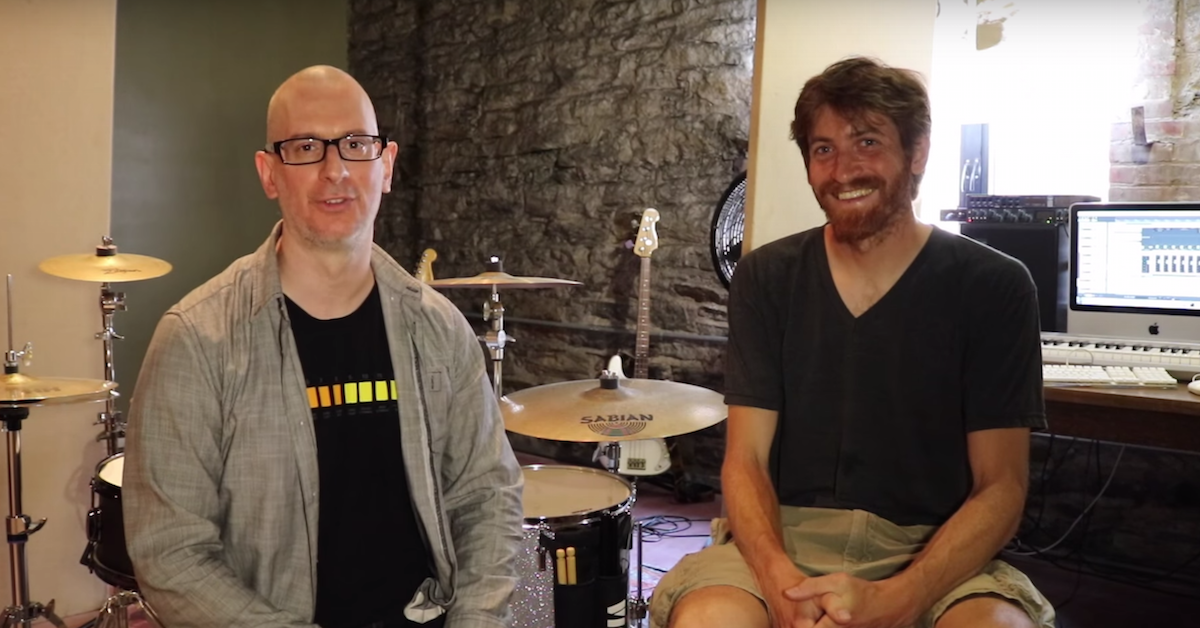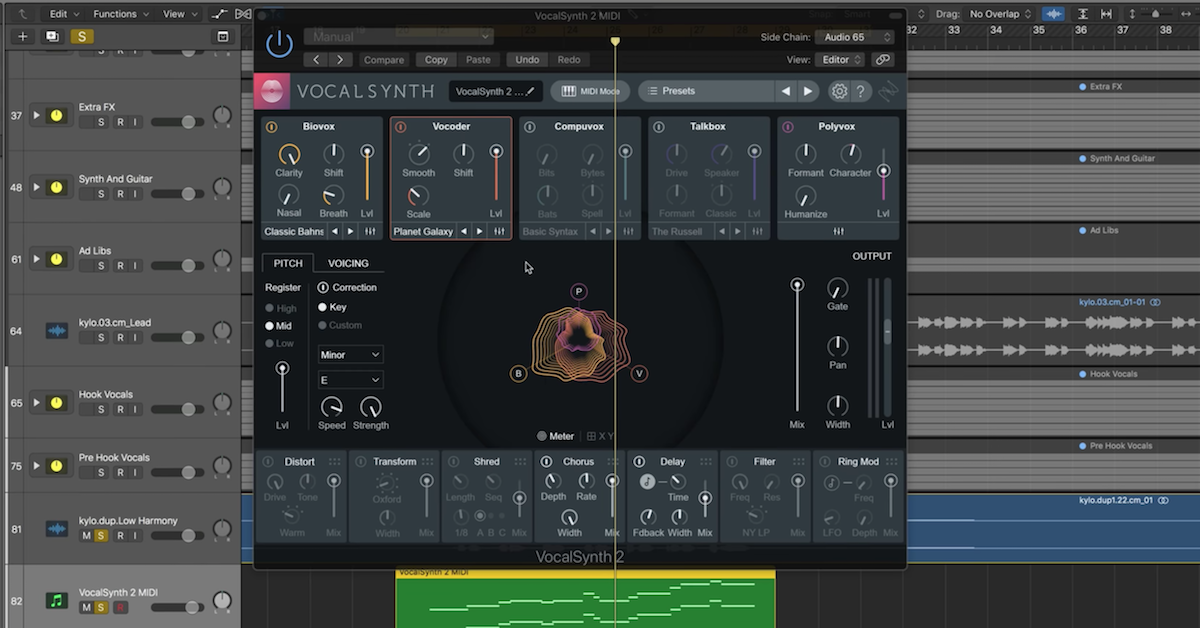Interview with ‘Black Mirror: Bandersnatch’ Composer Brian Reitzell
Article Content
I recently had the opportunity to interview Brian Reitzell, who has worn many musical hats in his illustrious career. He’s played in multiple bands (Redd Kross, Air), served as music supervisor (Lost in Translation, Stranger Than Fiction), and has composed music for numerous film and television projects including Hannibal, American Gods and most recently Black Mirror: Bandersnatch, which debuted on Netflix on December 28th, 2018. I spoke with him about his work on the first-of-its-kind interactive film, and a variety of other music-related topics.
Ian Vargo: You recently scored Black Mirror: Bandersnatch, which is unique in that it follows a choose-your-own-adventure format. Can you elaborate on what it was like working on an interactive film, and how it differed from projects you’ve scored in the past?
Brian Reitzell: Everything about Bandersnatch was different! A new challenge in every possible way. From reading the script — which took days because it was interactive and kept crashing/evolving, to delivering the hundreds of cues. A massive sonic puzzle. It was crucial that it would flow seamlessly from one cue/scene into a multitude of directions and then permutation on top of permutation. Then, of course, you have all the intersections, the connective musical tissue from one path to another. I did the bulk of the score following one storyline all the way through. I would then go and score the next path all the way through. After about five fairly complete scores I then did the various other major outcomes and then the smaller and smaller cues. It was important to me that the experience didn’t feel static — like I was reusing a bunch of music from previous scenes, so I created a harmonic mapping system to build a kind of sonic tree — full of different musical paths that would be connected tonally yet all scored individually. I created music for the ‘choice points’, the recaps, flashbacks, the video games and the Micro Play theme.
I had 231 Pro Tools sessions in the end. Normally on an episode of something like Hannibal or American Gods I would have five or six sessions so this was like looking at years of session data. To navigate my workflow, I created a complex color scheme file system so I knew where I was in the stream. I didn’t have any way to audition the various cues going into each other so I had to be mindful where each piece started, ended and how they might best handoff. I had done a few video game scores so I had experimented with modular music before but this was a whole new level. Much more cinematic, physiological and infinitely more complex.
IV: Much like San Junipero, which is another excellent episode of Black Mirror, Bandersnatch really nails the 80’s aesthetic, both visually and sonically. What synthesizers and other pieces of technology did you use to achieve that?
BR: I graduated high school in 1984, so this was easy for me to connect with. I collect synths and drum machines so I had everything I needed. I connected to the music of the era by using a PPG Wave 2.3, Juno 60, Linn Drum, Freeman String Symphonizer, CS-80 and some Simmons and Pearl drum synths — no soft synths.
To connect with the Tangerine Dream and the Tomita (source music) I used a 32-step analog sequencer, a Korg MS-20, Roland CR-78, a Mellotron and an 8-voice analog synth that is controlled via ribbons, antennae, etc.
For the video games and part of the score as well, I used a SID (Commodore sound chip), a Gameboy (fitted with the Nano Loop seq/synth program) and an Atari 2600 video game console, that has been modded into a synth.
Dave Palmer, one of my core musicians owns the Atari and is much better at programming the Gameboy than I am so he helped me with that. I recorded everything in Quad, mostly engineering by myself, and to keep things retro yet futuristic, I employed a suite of brand spanking new super multidimensional plugin effects fed from the effects of the day like the Eventide, the Cyclosonic SongBird, MuTron Phaser and Lexicon and Sony reverbs.
IV: You’ve mentioned (while working on Hannibal) that director David Slade likes to use music as sound effects. How closely involved are you with the sound department on a project like Bandersnatch?
BR: When I work with David, I tend to take all of the sound effects out except for things that need to really be there like a door closing or something basic. I then create sounds for the world of the scene. David likes atmosphere, as do I, so I will build up tones for all the environments changing and mutating from environment to environment scene to scene. It’s more felt than heard, more psychological, less melodic, more textural, physical, rhythmic in the sense of breathing, blood flow, pulse, etc.
Everybody had their hands full on Bandersnatch so I covered all but a few scenes and then David went to the mix in London to figure out how heavily to feature my atmosphere/score with the sound design.
Joakim, the sound designer, is fantastic, totally gets it, and we did connect early on. It’s a blend but the score leads and is pretty much always there. With Hannibal, I did things like door locks, falling trees, animal sounds, motorcycle engines, etc. all with musical instruments. I love that ‘old school’ silent movie, music/foley behind the curtain vibe. I love old movies that have no sound design, just music and dialogue all in mono. This is very much a new school/old school method of scoring.
IV: You’re a fan of collecting unique organic instruments and then incorporating them into your work, what’s the latest addition to your collection?
BR: I recently picked up a Leedy Anvil. It’s from 1910. I collect old percussion instruments. The older the metal, the richer the sound. It sounds like the doorbell to heaven.
IV: Are there any virtual instruments or pieces of digital technology that are important to your process?
BR: Pro Tools obviously is vital, other than that I like the GRM stuff and I use Altiverb for most of my reverbs. I like Kontakt as a sampler, but I don’t think I used it on Bandersnatch.
IV: You’ve got a notorious work ethic — you’ve played in bands, worked as a music supervisor, and have composed for film and TV. Where does all that creative energy come from, and how do you stay inspired?
BR: I just love music. Listening to it, making it, inventing it, experimenting with it, learning new ways to create it. I have always been a progressive. Always looking around the corner. I surround myself with music, books, films and instruments. Every day something new happens and that leads me to the next corner. Staying hungry isn’t really much of a problem when you hang out in a kitchen stocked like a 3-star Michelin restaurant and a talented chef/director to cook with. I have worked with and learned from some really clever people and those collaborations keep everything moving forward and interesting. I’m careful though to take jobs that allow me the chance to grow and to be myself. I feel tremendously fortunate to get the opportunity to do something as unique and challenging as Bandersnatch.
IV: What is the most challenging part of composing for visual media?
BR: That it’s constantly changing. Each score I did this year was a totally different medium/process/delivery. I’m all for it but it keeps me on my toes!
IV: Do you have any advice for aspiring composers?
BR: Just to do it. Don’t wait for the chance to score a film. Go and score one. The second score I ever did was the sequel to the 70’s film Logan’s Run. It wasn’t a real film, but we pretended it was. I co-wrote a script/synopsis, made some costumes, shot some stills and recorded the score. We put it out and had a blast. I learned a lot plus had some music for my library.
For more info on Brian, click here.
Thanks to Brian Reitzell for taking the time for the interview, and to Jessica Linker at Pitch Perfect PR for putting me in touch.





